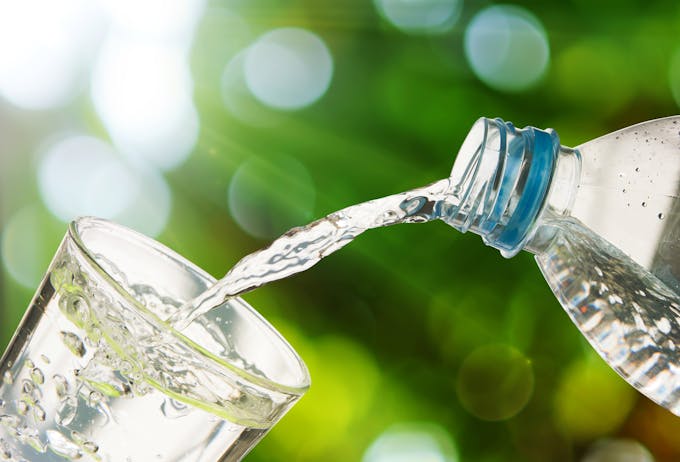Keto Headaches: Causes and Solutions

How to Read Your Body
Learn to recognize common symptoms and uncover their underlying health issues
Understand the signs of nutrient deficiencies to manage your health
Explore the four metabolic body types and the core factors that influence them
Interpret your body's signals from head to toe to identify potential health concerns

How to Read Your Body
Learn to recognize common symptoms and uncover their underlying health issues
Understand the signs of nutrient deficiencies to manage your health
Explore the four metabolic body types and the core factors that influence them
Interpret your body's signals from head to toe to identify potential health concerns

How to Read Your Body
Learn to recognize common symptoms and uncover their underlying health issues
Understand the signs of nutrient deficiencies to manage your health
Explore the four metabolic body types and the core factors that influence them
Interpret your body's signals from head to toe to identify potential health concerns

How to Read Your Body
Learn to recognize common symptoms and uncover their underlying health issues
Understand the signs of nutrient deficiencies to manage your health
Explore the four metabolic body types and the core factors that influence them
Interpret your body's signals from head to toe to identify potential health concerns

How to Read Your Body
Learn to recognize common symptoms and uncover their underlying health issues
Understand the signs of nutrient deficiencies to manage your health
Explore the four metabolic body types and the core factors that influence them
Interpret your body's signals from head to toe to identify potential health concerns

How to Read Your Body
Learn to recognize common symptoms and uncover their underlying health issues
Understand the signs of nutrient deficiencies to manage your health
Explore the four metabolic body types and the core factors that influence them
Interpret your body's signals from head to toe to identify potential health concerns

How to Read Your Body
Learn to recognize common symptoms and uncover their underlying health issues
Understand the signs of nutrient deficiencies to manage your health
Explore the four metabolic body types and the core factors that influence them
Interpret your body's signals from head to toe to identify potential health concerns

How to Read Your Body
Learn to recognize common symptoms and uncover their underlying health issues
Understand the signs of nutrient deficiencies to manage your health
Explore the four metabolic body types and the core factors that influence them
Interpret your body's signals from head to toe to identify potential health concerns

How to Read Your Body
Learn to recognize common symptoms and uncover their underlying health issues
Understand the signs of nutrient deficiencies to manage your health
Explore the four metabolic body types and the core factors that influence them
Interpret your body's signals from head to toe to identify potential health concerns

How to Read Your Body
Learn to recognize common symptoms and uncover their underlying health issues
Understand the signs of nutrient deficiencies to manage your health
Explore the four metabolic body types and the core factors that influence them
Interpret your body's signals from head to toe to identify potential health concerns

How to Read Your Body
Learn to recognize common symptoms and uncover their underlying health issues
Understand the signs of nutrient deficiencies to manage your health
Explore the four metabolic body types and the core factors that influence them
Interpret your body's signals from head to toe to identify potential health concerns

How to Read Your Body
Learn to recognize common symptoms and uncover their underlying health issues
Understand the signs of nutrient deficiencies to manage your health
Explore the four metabolic body types and the core factors that influence them
Interpret your body's signals from head to toe to identify potential health concerns

How to Read Your Body
Learn to recognize common symptoms and uncover their underlying health issues
Understand the signs of nutrient deficiencies to manage your health
Explore the four metabolic body types and the core factors that influence them
Interpret your body's signals from head to toe to identify potential health concerns

How to Read Your Body
Learn to recognize common symptoms and uncover their underlying health issues
Understand the signs of nutrient deficiencies to manage your health
Explore the four metabolic body types and the core factors that influence them
Interpret your body's signals from head to toe to identify potential health concerns

How to Read Your Body
Learn to recognize common symptoms and uncover their underlying health issues
Understand the signs of nutrient deficiencies to manage your health
Explore the four metabolic body types and the core factors that influence them
Interpret your body's signals from head to toe to identify potential health concerns

How to Read Your Body
Learn to recognize common symptoms and uncover their underlying health issues
Understand the signs of nutrient deficiencies to manage your health
Explore the four metabolic body types and the core factors that influence them
Interpret your body's signals from head to toe to identify potential health concerns

How to Read Your Body
Learn to recognize common symptoms and uncover their underlying health issues
Understand the signs of nutrient deficiencies to manage your health
Explore the four metabolic body types and the core factors that influence them
Interpret your body's signals from head to toe to identify potential health concerns

How to Read Your Body
Learn to recognize common symptoms and uncover their underlying health issues
Understand the signs of nutrient deficiencies to manage your health
Explore the four metabolic body types and the core factors that influence them
Interpret your body's signals from head to toe to identify potential health concerns

Easy Keto and Intermittent Fasting
Discover the fundamentals of Healthy Keto® and intermittent fasting
Understand the unique benefits of combining keto and intermittent fasting
Explore what foods to include and avoid on a Healthy Keto diet
Receive practical advice on common pitfalls and how to overcome them
Get a selection of easy-to-make and nutritious recipes to get you started

Easy Keto and Intermittent Fasting
Discover the fundamentals of Healthy Keto® and intermittent fasting
Understand the unique benefits of combining keto and intermittent fasting
Explore what foods to include and avoid on a Healthy Keto diet
Receive practical advice on common pitfalls and how to overcome them
Get a selection of easy-to-make and nutritious recipes to get you started

Easy Keto and Intermittent Fasting
Discover the fundamentals of Healthy Keto® and intermittent fasting
Understand the unique benefits of combining keto and intermittent fasting
Explore what foods to include and avoid on a Healthy Keto diet
Receive practical advice on common pitfalls and how to overcome them
Get a selection of easy-to-make and nutritious recipes to get you started

Easy Keto and Intermittent Fasting
Discover the fundamentals of Healthy Keto® and intermittent fasting
Understand the unique benefits of combining keto and intermittent fasting
Explore what foods to include and avoid on a Healthy Keto diet
Receive practical advice on common pitfalls and how to overcome them
Get a selection of easy-to-make and nutritious recipes to get you started

Easy Keto and Intermittent Fasting
Discover the fundamentals of Healthy Keto® and intermittent fasting
Understand the unique benefits of combining keto and intermittent fasting
Explore what foods to include and avoid on a Healthy Keto diet
Receive practical advice on common pitfalls and how to overcome them
Get a selection of easy-to-make and nutritious recipes to get you started

Easy Keto and Intermittent Fasting
Discover the fundamentals of Healthy Keto® and intermittent fasting
Understand the unique benefits of combining keto and intermittent fasting
Explore what foods to include and avoid on a Healthy Keto diet
Receive practical advice on common pitfalls and how to overcome them
Get a selection of easy-to-make and nutritious recipes to get you started

Easy Keto and Intermittent Fasting
Discover the fundamentals of Healthy Keto® and intermittent fasting
Understand the unique benefits of combining keto and intermittent fasting
Explore what foods to include and avoid on a Healthy Keto diet
Receive practical advice on common pitfalls and how to overcome them
Get a selection of easy-to-make and nutritious recipes to get you started

Easy Keto and Intermittent Fasting
Discover the fundamentals of Healthy Keto® and intermittent fasting
Understand the unique benefits of combining keto and intermittent fasting
Explore what foods to include and avoid on a Healthy Keto diet
Receive practical advice on common pitfalls and how to overcome them
Get a selection of easy-to-make and nutritious recipes to get you started

Easy Keto and Intermittent Fasting
Discover the fundamentals of Healthy Keto® and intermittent fasting
Understand the unique benefits of combining keto and intermittent fasting
Explore what foods to include and avoid on a Healthy Keto diet
Receive practical advice on common pitfalls and how to overcome them
Get a selection of easy-to-make and nutritious recipes to get you started

Easy Keto and Intermittent Fasting
Discover the fundamentals of Healthy Keto® and intermittent fasting
Understand the unique benefits of combining keto and intermittent fasting
Explore what foods to include and avoid on a Healthy Keto diet
Receive practical advice on common pitfalls and how to overcome them
Get a selection of easy-to-make and nutritious recipes to get you started

Easy Keto and Intermittent Fasting
Discover the fundamentals of Healthy Keto® and intermittent fasting
Understand the unique benefits of combining keto and intermittent fasting
Explore what foods to include and avoid on a Healthy Keto diet
Receive practical advice on common pitfalls and how to overcome them
Get a selection of easy-to-make and nutritious recipes to get you started

Easy Keto and Intermittent Fasting
Discover the fundamentals of Healthy Keto® and intermittent fasting
Understand the unique benefits of combining keto and intermittent fasting
Explore what foods to include and avoid on a Healthy Keto diet
Receive practical advice on common pitfalls and how to overcome them
Get a selection of easy-to-make and nutritious recipes to get you started

Easy Keto and Intermittent Fasting
Discover the fundamentals of Healthy Keto® and intermittent fasting
Understand the unique benefits of combining keto and intermittent fasting
Explore what foods to include and avoid on a Healthy Keto diet
Receive practical advice on common pitfalls and how to overcome them
Get a selection of easy-to-make and nutritious recipes to get you started

Easy Keto and Intermittent Fasting
Discover the fundamentals of Healthy Keto® and intermittent fasting
Understand the unique benefits of combining keto and intermittent fasting
Explore what foods to include and avoid on a Healthy Keto diet
Receive practical advice on common pitfalls and how to overcome them
Get a selection of easy-to-make and nutritious recipes to get you started

Easy Keto and Intermittent Fasting
Discover the fundamentals of Healthy Keto® and intermittent fasting
Understand the unique benefits of combining keto and intermittent fasting
Explore what foods to include and avoid on a Healthy Keto diet
Receive practical advice on common pitfalls and how to overcome them
Get a selection of easy-to-make and nutritious recipes to get you started

Easy Keto and Intermittent Fasting
Discover the fundamentals of Healthy Keto® and intermittent fasting
Understand the unique benefits of combining keto and intermittent fasting
Explore what foods to include and avoid on a Healthy Keto diet
Receive practical advice on common pitfalls and how to overcome them
Get a selection of easy-to-make and nutritious recipes to get you started

Easy Keto and Intermittent Fasting
Discover the fundamentals of Healthy Keto® and intermittent fasting
Understand the unique benefits of combining keto and intermittent fasting
Explore what foods to include and avoid on a Healthy Keto diet
Receive practical advice on common pitfalls and how to overcome them
Get a selection of easy-to-make and nutritious recipes to get you started
You may have noticed frequent headaches since you started your keto journey. Keto headaches are a common side effect of adapting to ketosis and nothing to be concerned about.
Transitioning your body to burn fat instead of carbs for energy requires significant changes in your metabolic state. As your body begins to adapt to keto, headaches will go away.
Let’s talk about why you experience keto headaches and how you can reduce the symptoms fast.

What is keto-adaptation?
Keto adaptation is the process of your body getting used to metabolic changes caused by a low-carb, high-fat diet. Keto shifts your metabolism to burn fat instead of sugar for energy, and your cells and tissues have to transition to this new fuel source.
Your body enters ketosis within a few days of starting the ketogenic diet, but it can take significantly longer to fully adapt to the profound metabolic changes in response to a low carbohydrate diet.
Keto headaches and brain fog are some of the most common symptoms of the “keto-flu.” The good news is that as your body adjusts to keto, symptoms typically disappear within the first week or two.
What causes keto headaches during adaptation?
Keto-related headaches are a normal response to changes to your energy metabolism and hormonal balance when transitioning to a low-carb, high-fat diet. Watch the above video to learn more about withdrawal and headaches during keto adaptation.
Let's take a look at common causes of keto headaches.
Low blood sugar
Your central nervous system is very sensitive to metabolic changes, and for a good reason. The brain requires plenty of steady energy to control your physiologic functioning.
Chances are you previously ate a high-carb diet, and your brain got used to sugar as a fuel source. Low blood sugar caused by restricting carbohydrates can stress your brain and trigger headaches and cravings.
Ketones are an excellent fuel source, especially for your brain. However, it can take time for your neurons and brain cells to adjust to the new fuel, and headaches are a common side effect of adapting to keto.
Dehydration and electrolyte imbalance
Reducing carb intake results in more steady blood sugar levels and balances insulin levels. Your body naturally requires less insulin, one of the leading health benefits of the keto diet.
Low insulin triggers ketosis but also causes water loss and electrolyte depletion in the early days of keto-adaptation. This rapid water loss is typically observed as quick weight loss, but headaches and brain fog are common dehydration symptoms.
Sodium, potassium, magnesium, and calcium are electrolytes that control fluid balance and heart rate and prevent muscle cramps. Electrolyte imbalances during the early stages of keto are frequent triggers for keto headaches.
Carbohydrate withdrawal
If your diet was high in processed and refined foods, and your carbohydrate intake was significantly higher before you were on keto, you may be suffering from withdrawal headaches.
Your brain responds to repeated behavioral and dietary habits, especially if you use food as a reward. It takes the brain some time to rewire this reward behavior, and withdrawal isn’t uncommon during keto adaptation. Headaches, cravings, and feeling uneasy are hallmark symptoms of withdrawal.

How long do keto headaches last?
How long keto headaches last depends on many factors—your previous diet, body weight, and how quickly your metabolism adapts to using fat as the primary fuel.
While some people adapt to keto within a few days, others need a little longer. Typically, keto-related headaches peak after a few days of starting keto and disappear within a week or two.
The best remedies for keto headaches
Fortunately, you can take plenty of steps to prevent a keto headache and minimize other keto flu symptoms like brain fog or fatigue.
Drink plenty of water
Dehydration can worsen headaches, and you should drink adequate fluids.
Hormonal changes in response to going keto cause increased water loss, especially in the early stages of keto-adaptation. To avoid dehydration and headaches, increase your water intake.
Replenish electrolytes
As your body adjusts to fat-burning, water loss and increased urination can deplete essential electrolytes like potassium, sodium, calcium, and magnesium.
Replenishing electrolytes is crucial to prevent keto headaches.
Eat more electrolyte-rich foods like vegetables and salad. Aim for seven to ten cups of veggies daily to get optimal amounts of nutrients.
Potassium-rich foods: pumpkin seeds, avocado, and mushrooms
Magnesium-rich foods: dark chocolate, salmon, avocado, nuts and seeds, and Swiss chard
Alternatively, find a good quality electrolyte supplement. Choose a keto-friendly option without added sugars or dextrose.

Adjust your carb intake
If you suffer intense keto headaches, increase your carb intake by around five grams daily. Once your headaches improve, allow your body to slowly ease back into ketosis to avoid low blood sugar, cravings, and withdrawal symptoms.
Avoid intense exercise
It can take time for your cells and tissues to adjust to fat being the primary fuel source. Until you are fully keto-adapted, avoiding intense workouts is best to prevent headaches.
Eat nutrient-dense, high-quality foods
A balanced ketogenic diet focuses on nutrient-dense foods rich in vitamins and minerals. Doing a Healthy Keto® diet supports your body’s nutritional stores and lowers the risk of keto-headaches.
B vitamins are crucial for fat metabolism, and deficiency can slow your keto-adaptation and worsen headaches.
The best foods for keto-headaches are nutrient-dense, high-quality foods like green leafy veggies, avocados, seeds and nuts, seafood, meat, and full-fat dairy.

Key takeaways
It takes some time to transition into a low-carb, high-fat diet, and your body has to adapt to several metabolic changes. Side effects like headaches are common and typically disappear within a week or two.
You can take plenty of steps to help your body transition into keto and minimize symptoms like keto headaches. Drink plenty of fluids, replenish electrolytes, and focus on high-quality keto-friendly foods to prevent the side effects of keto-adaptation.
Listen to your body and tweak your carb intake if necessary. Transition slowly into keto to allow your central nervous system and brain to adjust to fat as its primary fuel source.
FAQ
1. Can going on keto cause headaches?
Yes, headaches are a common side effect of transitioning to a keto diet. Research suggests that a keto headache is one of the most common symptoms during the first few weeks of keto adaptation. As your body adapts to keto, headaches will diminish.
2. What causes keto headaches?
Your body has to adjust to significant metabolic changes during the first few weeks of keto. The keto diet is a very low carbohydrate diet and causes insulin levels to drop. Low levels of insulin cause dehydration and electrolyte loss which can worsen headaches.
3. How long do keto headaches last?
Headaches can peak a few days after starting the keto diet, but as you adapt, they will usually disappear within a week or two.
4. How do I stop keto headaches?
As your body adjusts to using ketone bodies as a primary fuel source, you can help your body transition by staying hydrated and replenishing electrolytes.
Avoid very intense workouts and slightly increase your carb intake by around five grams daily if you suffer severe headaches. Eat plenty of nutritious foods and lower your alcohol intake to avoid nutrient deficiencies that can worsen headaches.
5. Should I stop keto if I get a headache?
No, stopping your keto diet is unnecessary if you get a keto headache. During the initial phases of keto-adaptation, water loss and electrolyte imbalances are common, and headaches will diminish once your body adjusts.
6. Does keto cause migraines?
Yes, keto migraines are a common side effect of carbohydrate restriction. A combination of low blood sugar, dehydration, and electrolyte imbalance during the early stages of the keto diet is likely the cause of a keto headache and can feel similar to migraines.
7. What is keto-adaptation?
As you restrict carbohydrates, your blood glucose levels stay balanced, and your body produces less insulin. Low insulin levels induce ketosis, and your body breaks down stored fat instead of sugar for energy.
Weight loss is a welcome side effect of the keto diet, but it can take your cells and tissues some time to get used to body fat being the primary fuel source. Until your body adapts to keto, you will likely experience some side effects of the metabolic changes caused by the keto diet.
8. What is the keto flu?
Keto flu symptoms are similar to having an infection. Changes to your metabolism in response to a low-carb, high-fat diet can cause temporary side effects like body aches, cramping, weakness, cravings, and headaches. Once your body is keto-adapted, keto flu typically goes away.
Your risk of developing keto-flu depends on factors like age, genetics, current body weight, and lifestyle habits that influence how quickly your metabolism can adapt to burning fat instead of sugar for energy.
9. What do keto headaches feel like?
Most people compare a keto headache to tension headaches or migraines, and severity can range from a dull ache to pounding and blurred vision.
10. Is it normal to have a headache when starting a keto diet?
Yes, a keto headache is one of the most common side effects of low-carb diets. Dehydration, electrolyte imbalance, and low blood sugar levels are common during the early weeks of keto and trigger keto headaches.
11. Can a low-carb diet give you headaches?
Yes, a low-carb diet can give you headaches, especially during the early phases of adapting to keto. Your body has to get used to utilizing fat as a primary energy source, and hormonal and metabolic changes in response to the keto diet can lead to temporary headaches.
12. How long does it take to adapt to a ketogenic diet?
While some people adapt to the keto diet within a few days, others need a little longer. Typically, your body will be keto-adapted within a few weeks.
13. Should I eat carbs if I get a keto headache?
While carbs should be restricted to no more than 50 net grams daily, it may be necessary to tweak your keto diet. If you suffer from severe keto headaches, increase your carbohydrate intake by around five grams daily to alleviate headaches and withdrawal symptoms.
14. Is keto good for people with migraines?
Yes, there is scientific evidence that ketogenic diets reduce migraines compared to a normal diet. Although not fully understood how, it’s believed that the keto diet balances brain chemistry and reduces neuroinflammation linked to migraines.
15. Why do I get a headache after I eat sugar?
Eating sugar spikes your blood sugar levels quickly, causing your pancreas to produce extra insulin. Insulin regulates your blood sugar levels, and elevated insulin as a result of eating sugar can cause very low blood sugar levels and headaches.
16. When do keto headaches start?
Keto headaches typically appear around day two after starting keto.
Next blog
The Health Benefits of CeleryTags

Popular
08/21/2024
55K views
02/23/2025
46.3K views
11/18/2024
277.5K views
03/18/2024
11/21/2022




